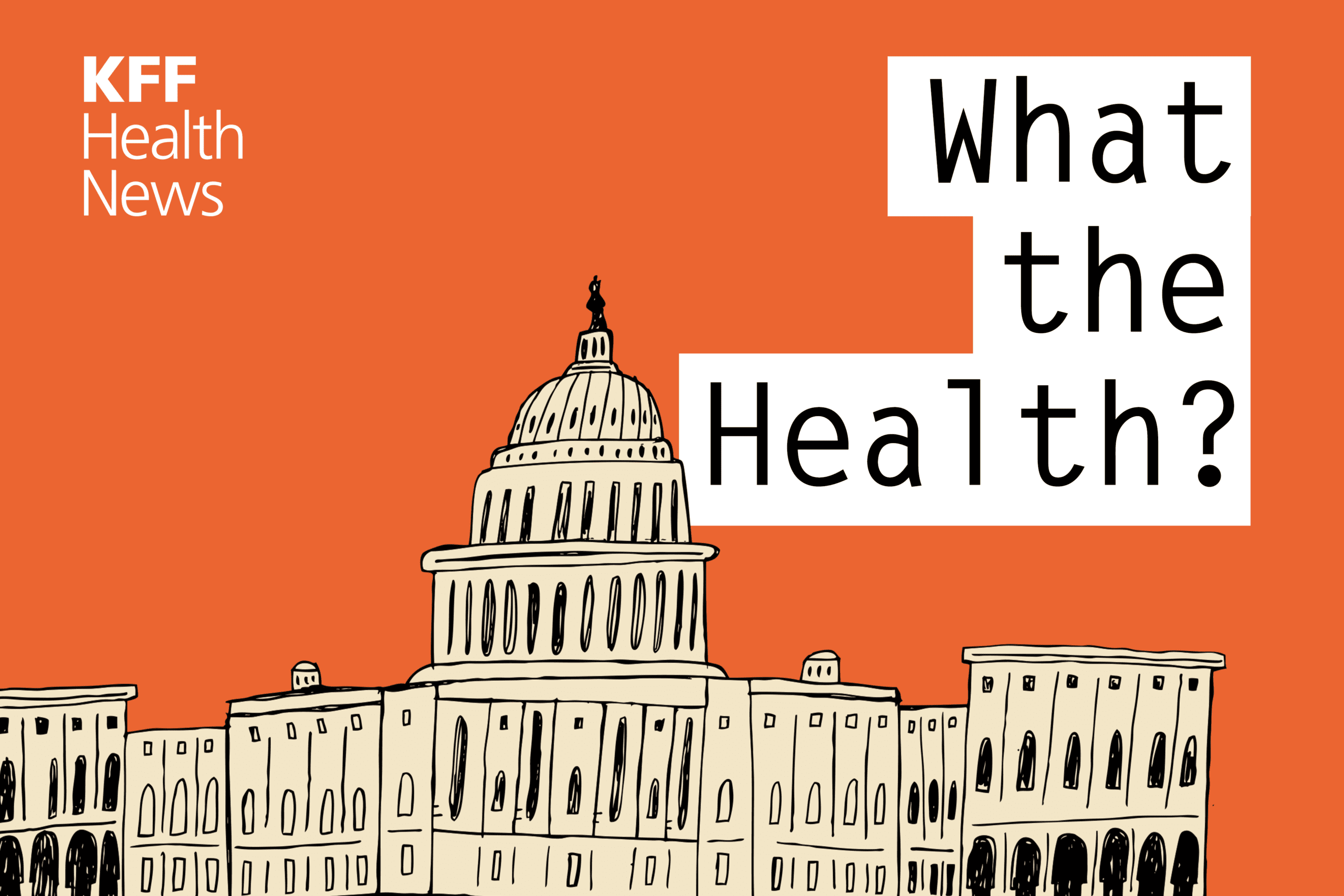The Host
The Arizona Supreme Court shook up the national abortion debate this week, ruling that a ban originally passed in 1864 — before the end of the Civil War and decades before Arizona became a state — could be enforced. As in some other states, including Florida, voters will likely have the chance to decide whether to enshrine abortion rights in the state constitution in November.
The Arizona ruling came just one day after former President Donald Trump declared that abortion should remain a state issue, although he then criticized the ruling as having gone “too far.”
This week’s panelists are Julie Rovner of KFF Health News, Alice Miranda Ollstein of Politico, Rachel Roubein of The Washington Post, and Rachel Cohrs Zhang of Stat.
Among the takeaways from this week’s episode:
Former President Donald Trump’s remarks this week reflect only the latest public shift in his views on abortion access. During an appearance on NBC’s “Meet the Press” in 1999, he described himself as “very pro-choice,” but by the 2016 presidential campaign, he had committed to nominating conservative Supreme Court justices likely to overturn the constitutional right to an abortion. Trump later blamed Republican losses in the 2022 elections on the overturning of that right.
Arizona officials, as well as doctors and patients, are untangling the ramifications of a state Supreme Court ruling this week allowing the enforcement of a near-total abortion ban dating to the Civil War. Yet any ban — even one that doesn’t last long — can have lasting effects. Abortion clinics may not survive such restrictions, and doctors and residents may factor them into their decisions about where to practice medicine.
Also in abortion news, an appeals court panel in Indiana unanimously ruled that the state cannot enforce its abortion ban against a group of non-Christians who sued, siding with mostly Jewish plaintiffs who charged that the ban violates their religious freedom rights.
A discouraging new study finds that paying off an individual’s medical debt once it has reached collections doesn’t offer them much financial — or mental health — benefit. One factor could be that the failure to pay medical debt is only a symptom of larger financial difficulties.
Also this week, Rovner interviews KFF Health News’ Molly Castle Work, who …
Article Attribution | Read More at Article Source
The Host
The Arizona Supreme Court shook up the national abortion debate this week, ruling that a ban originally passed in 1864 — before the end of the Civil War and decades before Arizona became a state — could be enforced. As in some other states, including Florida, voters will likely have the chance to decide whether to enshrine abortion rights in the state constitution in November.
The Arizona ruling came just one day after former President Donald Trump declared that abortion should remain a state issue, although he then criticized the ruling as having gone “too far.”
This week’s panelists are Julie Rovner of KFF Health News, Alice Miranda Ollstein of Politico, Rachel Roubein of The Washington Post, and Rachel Cohrs Zhang of Stat.
Among the takeaways from this week’s episode:
Former President Donald Trump’s remarks this week reflect only the latest public shift in his views on abortion access. During an appearance on NBC’s “Meet the Press” in 1999, he described himself as “very pro-choice,” but by the 2016 presidential campaign, he had committed to nominating conservative Supreme Court justices likely to overturn the constitutional right to an abortion. Trump later blamed Republican losses in the 2022 elections on the overturning of that right.
Arizona officials, as well as doctors and patients, are untangling the ramifications of a state Supreme Court ruling this week allowing the enforcement of a near-total abortion ban dating to the Civil War. Yet any ban — even one that doesn’t last long — can have lasting effects. Abortion clinics may not survive such restrictions, and doctors and residents may factor them into their decisions about where to practice medicine.
Also in abortion news, an appeals court panel in Indiana unanimously ruled that the state cannot enforce its abortion ban against a group of non-Christians who sued, siding with mostly Jewish plaintiffs who charged that the ban violates their religious freedom rights.
A discouraging new study finds that paying off an individual’s medical debt once it has reached collections doesn’t offer them much financial — or mental health — benefit. One factor could be that the failure to pay medical debt is only a symptom of larger financial difficulties.
Also this week, Rovner interviews KFF Health News’ Molly Castle Work, who …nnDiscussion:nn” ai_name=”RocketNews AI: ” start_sentence=”Can I tell you more about this article?” text_input_placeholder=”Type ‘Yes'”]

